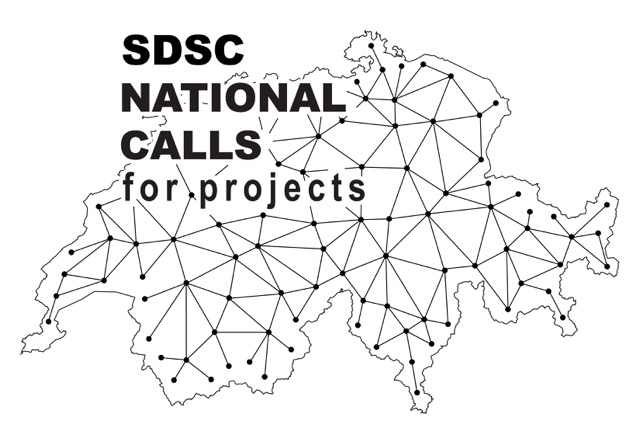
CleaRIS
Cleantech Recommendation and Intelligence System

Abstract
The global climate goals, combined with new regulations like the Corporate Sustainability Reporting Directive (CSRD), are accelerating pressure on companies to innovate in CleanTech and ClimateTech. Yet, many businesses still lack the guidance and tools needed to navigate this rapidly evolving landscape. While the International Energy Agency estimates that nearly half of necessary emissions reductions by 2050 must come from technologies that don’t yet exist, current regulatory enforcement and climate-related litigation - such as the ECB fines in May 2024 and the Swiss “climate seniors” case - show that many organizations struggle to keep pace.
CleaRIS aims to close this gap by building an AI-powered intelligence platform that continuously monitors and visualizes developments in the global CleanTech space. By combining predictive AI methods with recent advances in generative AI, the platform offers tailored, grounded recommendations that help companies adopt CleanTech solutions, comply with regulatory requirements, and communicate their efforts to key stakeholders.
The system leverages Retrieval-Augmented Generation (RAG) and agentic planning to generate domain-specific insights, drawing from a wide array of public data sources including media, patent and scholarly publications as well as company-internal documentation. This hybrid approach ensures relevance, accuracy, and context-aware guidance.
In this collaboration, we combine SDSC’s proven capability to deliver robust AI systems with our partners’ academic expertise in ESG factors, CleanTech innovation, and AI-supported decision-making, to help accelerate the global transition to a more sustainable economy.
People
Collaborators


Anna joined SDSC as a Data Scientist focusing on industry collaborations in July 2019. She completed her PhD in Bioinformatics at the University of Luxembourg, where she analysed large-scale heterogeneous datasets and leveraged multiple disciplines: Statistics, Network Analysis, and Machine Learning. Before joining SDSC, Anna worked as a Data Scientist at Deloitte Luxembourg, with a focus on computer vision and time-series analysis.Currently, Anna is a Principal Data Scientist based at the ETH Zurich office, where she leads biomedical collaborations with industry partners. Anna works on a range of projects: protein properties prediction, biomanufacturing optimization, statistical model evaluation and others.


Snežana joined the SDSC industry team in June 2021 on a mission to advance adoption of modern data driven solutions in the domain of public health care. She has a background in experimental particle physics with a Diploma from the ETH Zurich and a PhD from the University of Geneva. Snežana pursued fundamental research in the field of high energy physics at CERN for nine years, harnessing the power of machine learning and statistical methods to uncover the traces of new physics in petabytes of proton-proton collision data and to develop innovative particle identification algorithms. Since 2018, Snežana served as a Data Science consultant, supporting partners from industries such as manufacturing, insurances, compliance services and online platforms in creating business value from internal and external data.
description
Motivation
Currently, a group of researchers from ETH, HSLU, and FHNW are conducting projects focusing on Environmental, Social, and Governance (ESG) factors, Cleantech innovation, greenwashing, and the integration of AI into decision-making processes for SMEs. The selected industry partner, Anacode, develops AI systems for customers in industries such as aerospace, automotive and commodities, where Cleantech innovations play a major role. Our collaborators have extensive experience of delivering LLM-based models for education and research events. They would like to build a flagship collaboration amongst the institutions for this strand of research.
Proposed Approach / Solution
Our collaborators aim to build an intelligence platform that continuously monitors and visualizes the global Cleantech industry. It provides tailored recommendations to businesses about implementing Cleantech innovations, fulfilling regulatory requirements, and communicating Cleantech initiatives to different stakeholders. In order to have first results for further analysis and improvement and to obtain a fast-to-prototype product, the project will start with a focus on the automotive and aerospace industries.
The core objectives include:
- Building a Cleantech-specific AI platform that provides recommendations and guidance for Cleantech adoption and innovation that are aligned with relevant regulations.
- Fine-tuning an LLM such as DeepSeek for domain-specific knowledge integration.
- Validating the Retrieval-Augmented Generation (RAG) system, ensuring precise, fact-based AI responses.
- Exploring various methods for embedding Cleantech expertise into the conversational system, including knowledge graphs, structured prompts, and neuro-symbolic AI (as described in the article series Injecting domain knowledge into your AI system).
Presentation
Gallery
Annexe
Cover image source: Adobe Stock
Additional resources
Bibliography
Publications
Related Pages
- Renku project: Reproducible Data Science | Open Research | Renku
More projects
EKZ: Synthetic Load Profile Generation
OneDoc: Ask Doki
SFOE Energy Dashboard
News
Latest news


Data Science & AI Briefing Series for Executives
Data Science & AI Briefing Series for Executives


PAIRED-HYDRO | Increasing the Lifespan of Hydropower Turbines with Machine Learning
PAIRED-HYDRO | Increasing the Lifespan of Hydropower Turbines with Machine Learning


First National Calls: 50 selected projects to start in 2025
First National Calls: 50 selected projects to start in 2025
Contact us
Let’s talk Data Science
Do you need our services or expertise?
Contact us for your next Data Science project!




